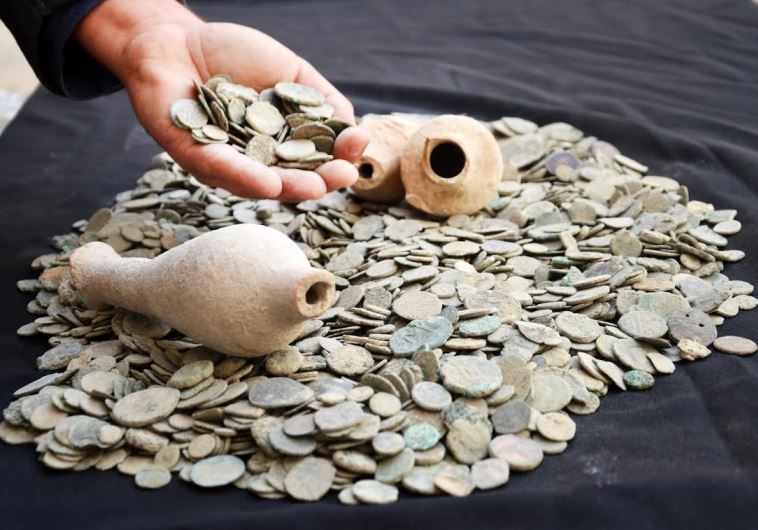Man arrested for attempting to sell 3,000 stolen ancient coins on black market
"The thousands of coins seized in the suspect’s home represent 2,500 years of history in the Land of Israel," the IAA said.
 AN IMAGE of the seized coins(photo credit: Israel Antiquities Authority)Updated:
AN IMAGE of the seized coins(photo credit: Israel Antiquities Authority)Updated: